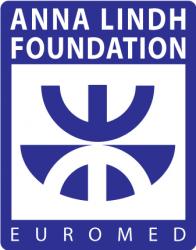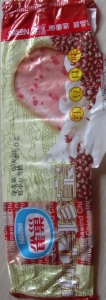 Today we have focused on innovative initiatives for intercultural training in the Euro-Mediterranean region and around the world. Please listen to some unusual and innovative approaches to engaging young people in intercultural dialogue.
Today we have focused on innovative initiatives for intercultural training in the Euro-Mediterranean region and around the world. Please listen to some unusual and innovative approaches to engaging young people in intercultural dialogue.
absolutely-open-minded:
Two weeks ago I was fortunate enough to take part in the Anna Lindh Foundation’s Euromed Bloggers Training on Intercultural Dialogue. The Hyperlink Project, an initiative carried out by the Anna Lindh Foundation gathered 18 influential and open-minded bloggers of the Euro-Mediterranean Region in Luxemburg, in the historical surroundings of the Centre Culturel de l’Abbaye de Neumünster . The bloggers from 17 countries came together for an exchange of views and a training session on the role of blogs in the promotion of intercultural dialogue. As a host of this podcast I was invited to this interactive training-session about intercultural dialogue and took the opportunity to talk to the organizers and trainers before the meeting started and the bloggers from all over the Euro-Mediterranean region arrived.
In the training we noticed that blogging, especially in those areas of the Mediterranean where creating and preserving peace is a constant concern, is a powerful tool for intercultural dialogue. As Andreu Claret, Executive Director of the Anna Lindh Foundation in Alexandria Egypt, expected the participants described the advantages of blogging, which allows barrier- and hierarchy-free communication and access to people in countries where the bloggers would sometimes not be allowed to travel.
absolutely onboard:
Listen to the description of an onboard intercultural environment where the participants of the intercultural training are out at sea. The Scholar Ship was an academic program aboard a cruise liner. The students travelled around the world for one semester and participated in an international study program.
The intention of the Scholar Ship was to educate the students in an intercultural way. The four key elements of the Scholar Ship program were
- an onboard classroom learning environment,
- a multicultural residential and social community,
- an experimental-oriented port program, and
- a strategic research initiative.
The Scholar Ship offered several onboard learning programs organized around the exploration of subjects in an interdisciplinary area of study. Students, professors and other staff explored subjects through classroom study, planned activities onboard, port programs, and informal interaction. Furthermore they offered the study of core subjects which were central to intercultural learning, like global issues and intercultural communication. Elective subjects and special programs during port stays completed the offer. Unfortunately, nowadays the ship is back in port for good because of lack of funding. However, before the first trip we had the opportunity of talking to Dr. Joseph D. Olander, the president of the Scholar Ship, during its planning phase. He compares the new experiences of the students on the Scholar Ship with explorers coming into contact with alien beings and being fearful of what he calls “strangeness”. The aim was to turn this fear into comfort and competence with all aspects of strangeness, including different languages, religious preferences, cultures and races.
Although the Scholar Ship project unfortunately had to be put on hold due to funding difficulties, efforts are still being made to embark on this intercultural journey again sometime in the future. We will certainly keep our fingers crossed for this very unusual and experimental form of intercultural training!
absolutely empowered:
We return to the intercultural training of bloggers by the Anna Lindh Foundation. I asked Adam Hill, one of the trainers, how you can hope to train bloggers in intercultural dialogue keeping in mind that we, the bloggers are seen by some as “digital prima donnas”, as “anarchic computer geeks” but certainly as very independent individuals. You will in fact hear much more about what happened in the intercultural training during our upcoming shows 91 and 93. I made more interviews with the participants and asked them to share their experiences of intercultural blogging with you. So we have a lot to look forward to! Please also check out my new blogger friends’ documentation of the event:
Carmel Vaisman – YouTube video about the ALF bloggers training PART I
Carmel Vaisman – YouTube video about the ALF bloggers training PART II
(please “Leave a Reply” below if you have further links that should be published on this page)
The next show will be coming to you on 21 August from Anne Fox in Denmark.
So long…stay tuned!
The host of this show is: Dr. Laurent Borgmann
Editor: Jan Warnecke

